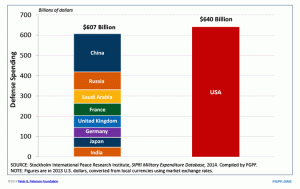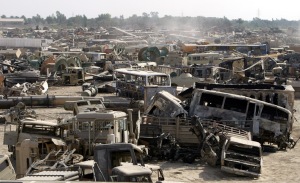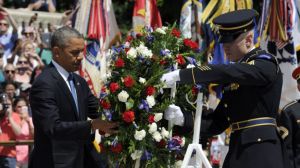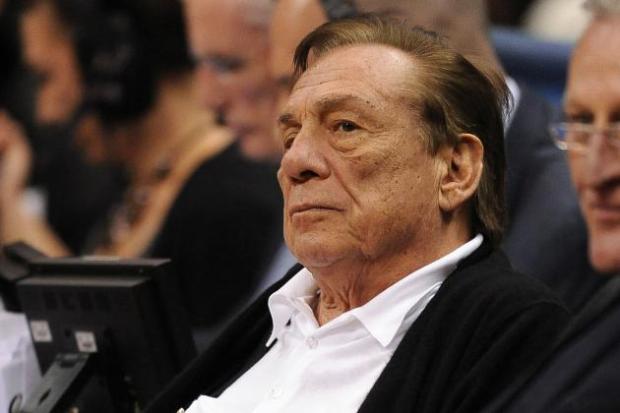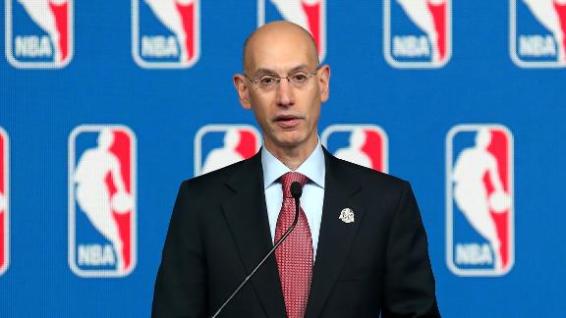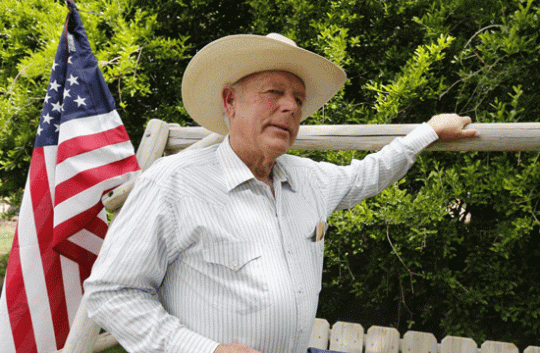Memorial Day: a holiday that once served as a day of remembrance for all the men and women who died while serving in our country's armed forces has slowly become synonymous with barbecuing and the beginning of summer. Memorial Day was established shortly after the end of the American Civil War to commemorate the Union and Confederate soldiers that died during combat. It soon became a day to remember all those who have perished while in the United States armed forces.
But unfortunately, it seem this country has lost the meaning of this holiday in recent years. Instead of remembering and honoring those who have served and died for our country, we are often found turning our backs on them and leaving them to fend for themselves.
The brave men and women of the United States armed forces are facing a threat that is bigger than any they've ever encountered in their years in the service. Despite sacrificing their time, and often times their lives, the veterans of these wars are often left without support when they return home. They return home, only to face daunting problems such as unemployment, crippling wounds, mental health issues, homelessness, and a lack of education among other things.
While bills such as the post-9/11 GI bill helped over 800,000 veterans go to college, they still face problems on campus, such as lack of counseling or support networks to succeed. Despite the fact that many veterans do attend college, the numbers are still unclear of how many of them have succeeded. Their lack of education and job experience often times lead to problems getting a job once they've returned home from service. While there are many tax credits and other incentives provided by either the federal or the state government to businesses in order to promote hiring veterans, unemployment is still rampant among veterans. The unemployment rate among recent (post-9/11) veterans is higher (9.0%) compared to the national average of 6.3%. This is due to the fact that many businesses are reluctant to hire veterans because they see them more of a liability than anything else. Many veterans lack the proper job training required for work that pays more than minimum wage.
Many veterans also return with wounds, both physical and mental, that are often irreparable. In the United States, the are over 2 million wounded former service men and women; that accounts for one in ten veterans.These veterans find it next to impossible to readjust to civilian life after having received these crippling wounds. But the wounds are not only physical; many times the most crippling wounds are the mental ones. A recent study found that nearly 30% of veterans treated by the VA suffer from PTSD. The number is lower at 20% among all veterans. The veterans affected by PTSD often times cannot readjust back to normal civilian life as nightmares and flashbacks are common.
Another issue that is prevalent amongst veterans is suicide. In the month of March alone, nearly 700 veterans committed suicide. Yet the public and our government have remained silent, virtually unphased by the scores and scores of tragic (and often times preventable) deaths. Suicide is especially rampant amongst veterans under thirty. The group's suicide rate has increased by 44% over the past two years.
Homelessness is another problem American Veterans face when they return home. According to the Department of Veteran's Affairs, nearly 50,000 Iraq and Afghanistan war veterans are either homeless or in federal programs aimed at keeping them from becoming homeless. Veterans are also far more likely to become homeless due to mental/physical health issues and lack of employment.
The United States military is massive. Actually, that's quite an understatement. It's gargantuan With over 1.3 million in the active forces and 850,000 in its reserves, the United States ranks as the most powerful military in the world. This statement can be verified by the fact that the United States spends 19% ($643 billion) of its budget on defense, which is more than the amount the next eight countries spend combined.I find it ironic that the United States spends such a ridiculous amount of money on defense and military spending, yet doesn't seem to care very much about its veterans. The reason behind this is simple: war is profitable. Just ask former Vice President Dick Cheney. Cheney's Halliburton, a multinational oil field services company, made $39.5 billion off of military (primarily Iraq-related) contracts in the past decade. The top 100 military contractors sold $410 billion in arms and military equipment, so even though the wars in Iraq and Afghanistan helped the global financial crisis of 2008 happen, hundreds of contractors made billions of dollars. Veterans have become pawns in the military industrial complex's cruel game of money and economic gain. These companies profited off the backs of thousands of service men and women and did little to repay them.
More than ten years after the start of the operation Iraqi Freedom, the war has claimed 190,000 lives and has cost the United States approximately $2.2 trillion dollars, including costs for veteran care through 2053. This estimate is 36 times larger than the initial estimate of $50-$60 billion. But the cost of the Iraq and Afghan war is much more than just monetary. Over 2 million troops have been deployed overseas during the past decade. Of those, 6,808 did not return with their lives. That doesn't include the scores of others that returned either with a mental or physical disability, or the thousands of civilian casualties.
While there are organizations such as the VA (Veterans Affairs) that are there to help veterans, recent scandals have shown the United State public how inefficient and bloated our system for taking care of veterans is. In recent weeks, the VA and its Secretary, retired four-star General Eric Shinseki, have come under heavy fire for allegations of mismanagement. The allegations include reports that many VA hospitals, such as the one in Phoenix, had secret analog "wait lists". Amidst veterans dying from ridiculous wait times for simple medical procedures, the director of the Phoenix VA hospital was reported to have received a $8,500 bonus. While the bonus has since been retracted, it's still worth to keep in mind that Secretary Shinsake had the final say on any performance ratings and awards. The aforementioned wait lists have resulted in the death of up to 40 veterans, many of whom were waiting for simple gastrointestinal procedures, such as colonoscopies and endoscopies. This revelation, coupled with the lack of response from anyone at the VA has caused a massive uproar, with many calling for Secretary Shinseki to resign his position.
President Obama met with Secretary Shinsake earlier this week; shortly afterwards he gave an impromptu speech in which he voiced support for the VA and Secretary Shinsake, but also warned that if the allegations are true, he "will not stand for it". Obama also vowed to punish anyone who was involved with this scandal. The allegations have placed the White House and Preisdent Obama in an awkward position. Prior to the allegations surfacing, the Obama administration supported the VA and Shinseki. After all, it was Obama who nominated Shinseki to the position of Secretary of the VA.
Earlier today, President continued the tradition of laying the wreath at the tomb of the Unknown Soldier at the Arlington National Cemetery. Secretary Shinseki was spotted in the crowd attending the ceremony. President Obama also briefly acknowledged the on-going VA scandal in his visit to Arlington.
“As we've been reminded in recent days, we must do more to keep faith with our veterans and their families to make sure they get the care and benefits and opportunities that they've earned and that they deserve,”President Obama was quoted saying in front of the crowd in Arlington.
This country, its people, and its government shouldn't be turning our backs on those who have served us. We owe it to our veterans for their years of service and the amount of effort they have put into defending our freedom. While we may not always agree with the conflicts they are deployed to, we must nonetheless hold these veterans with the utmost respect. We need to provide them with the care and services that they deserved and hopefully this scandal brings reform.

